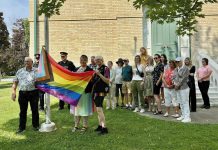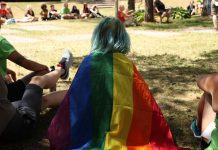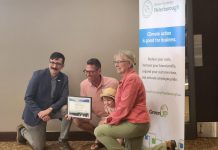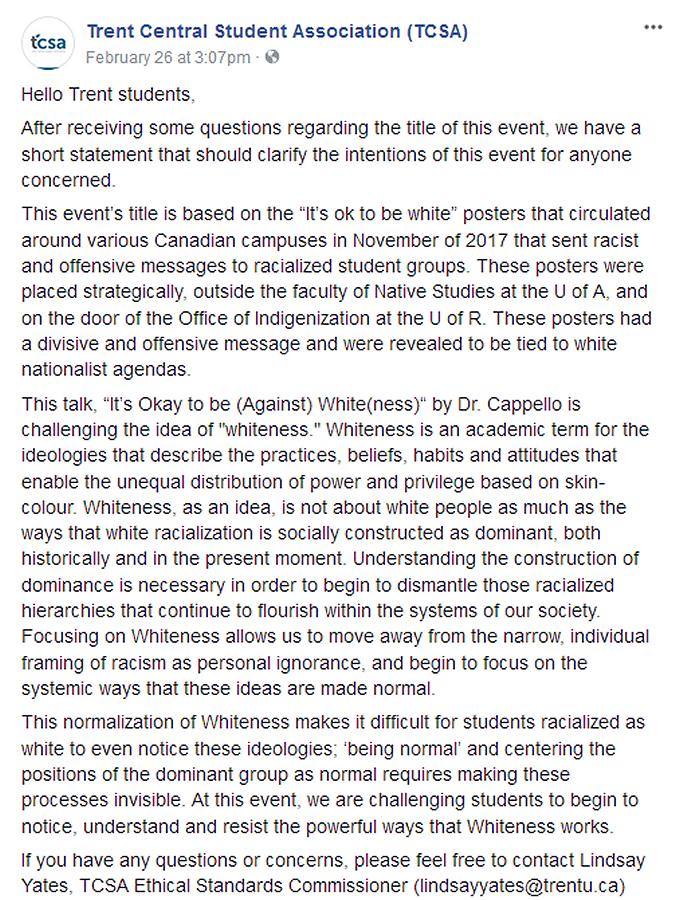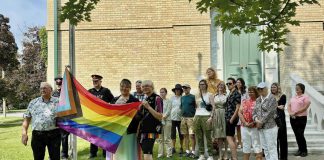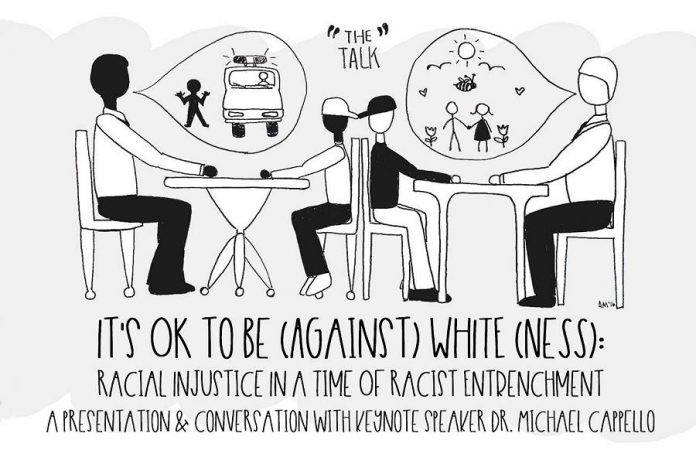
A racial injustice event to be hosted at Trent University by the student association has attracted controversy.
The event, planned for Monday, March 12th from 4 to 6 p.m., features keynote speaker Dr. Michael Cappello from the Faculty of Education at the University of Regina in Saskatchewan.
Capello, who describes himself as “anti-racist/anti-oppressive” teacher and educator and as a “white settler living and working on Treaty 4 territory”, has spent the last four years focussing on the issues of colonialism and reconciliation between Indigenous and non-Indigenous peoples.
The controversy isn’t about Cappello though — it’s about the title of the event: “It’s OK to be [Against] White[ness]”.
The event’s title refers to racially motivated “It’s OK to be white” posters that circulated around university campuses in November 2017.
“Whiteness is an academic term for the ideologies that describe the practices, beliefs, habits and attitudes that enable the unequal distribution of power and privilege based on skin colour,” the event description reads. “Whiteness, as an idea, is not about white people as much as the ways that white racialization is socially constructed as dominant, both historically and in the present moment.”
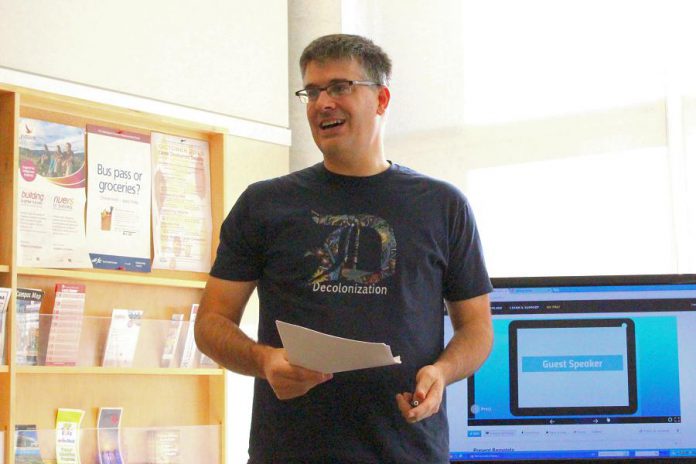
After the Trent Central Student Association (TSCA) created a public event page on Facebook, a backlash about the event began.
In an email to kawarthaNOW.com, Lindsay Yates — the TSCA’s ethical standards commissioner — says the event has drawn attention from “right-leaning and white-nationalist students and groups in Ontario”. She expresses concern that the nature of the event is being misinterpreted as being racially divisive.
“This event is about recognizing privilege that is granted based on racial identity and helping students who do have access to white privilege think more about how to be allies to racialized communities,” Yates writes. “The event is focused on diversity, inclusion and conversations about how we can all work together to help achieve racial justice.”
In response to the backlash, the TSCA posted a statement to explain the title and nature of the event:
However, the explanation did little to stop negative comments such as “You are inciting hatred against an identifiable group (Caucasians)” and “How can we take this blatant attack of whites in our higher places of learning”. While other commenters supported the event, eventually the TSCA turned off commenting on the post.
The controversy has been covered by several media sources, including the Ottawa Sun, Narcity in Toronto, and the Daily Hive in Vancouver.
The Toronto Sun ran an opinion editorial on March 2, 2018 under the headline “Trent students foolishly fuel toxic debate over race”.
The opinion piece accuses the event organizers of adopting “divisive, racist tactics” and claims the event is based on “a toxic and divisive ideology steeped in the intolerant loathing inherent in postmodernism and cultural Marxism that divides the world into us versus them groups, into victims and oppressors.”
Ironically, the Toronto Sun opinion editorial was published on the same day when Trent University officially renamed its School for Indigenous Studies as the Chanie Wenjack School for Indigenous Studies, in honour of the Anishinaabe boy who died after running way from a residential school in 1963. The launch event was attended by the families of Chanie Wenjack and Gord Downie.


